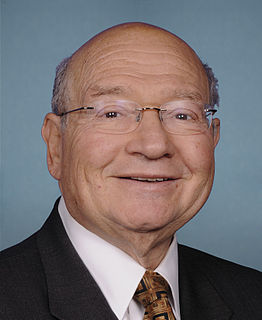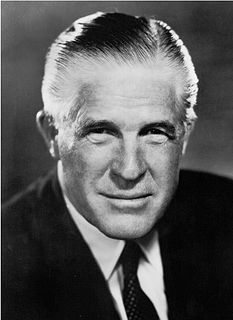A Quote by Gary Ackerman
And it's absolutely hypocritical for the political party that talks about states rights, to suddenly ignore states rights, that say that the federal government or federalism has no business in this kind of business.
Related Quotes
Abortion is a states' rights issue. Education is a states' right issue. Medicinal marijuana is a states' rights issue. Gay marraige is a states' rights issue. Assisted suicide- like Terri Schiavo- is a states' rights issue. Come to think of it, almost every issue is a states' rights issue. Let's get the federal government out of our lives.
My friends, to those who say that we are rushing this issue of civil rights, I say to them we are 172 years late. To those who say that this civil-rights program is an infringement on states’ rights, I say this: The time has arrived in America for the Democratic Party to get out of the shadow of states' rights and to walk forthrightly into the bright sunshine of human rights.
For states' rights advocates, the Constitution is like a contract that is openly violated by one party with impunity. On paper, the states remain sovereign powers, while in reality the federal government appears able to dictate everything from the ingredients of school lunches to speed limits. Congress now routinely collects taxes in order to return the money to the states with conditions on their conforming to federal demands.
When the civil rights community raised a lot of concerns around the nomination of Mr. Sessions, Senator Sessions, one of the things was that he`s on record of saying things intrusive, like voting rights,that he doesn`t believe the federal government should interfere with local policing, almost like states` rights kind of rhetoric.
Demographically, I'm a hippie from San Francisco and I'm not culturally inclined to be sympathetic to states' rights. My cultural heritage is FDR and Medicare and federal government solutions. But if you think through the analysis, strengthening state rights is a good corrective of the aggregation of an over-reaching federal power.
It is federal, because it is the government of States united in a political union, in contradistinction to a government of individuals, that is, by what is usually called, a social compact. To express it more concisely, it is federal and not national because it is the government of a community of States, and not the government of a single State or Nation.
The Supreme Court had the choice not only which way to rule, pro- or anti-gay marriage rights, but also how they were going to rule. They could have ruled just federalism, saying, "This isn't a matter for federal; this isn't a federal issue at all. States should decide it." Or they could decide it on equal protection grounds and say that, "Gay discrimination is wrong."
Virginia States' rights, as our forefathers conceived it, was a protection of the right of the individual citizen. Those who preach most frequently about states' rights today are not those seeking the protection of the individual citizen, but his exploitation. The time is long past — if indeed it ever existed — when we should permit the noble concept of states' rights to be betrayed.
[Before the Civil Rights Act of 1964], many governments in southern states forced people to segregate by race. Civil rights advocates fought to repeal these state laws, but failed. So they appealed to the federal government, which responded with the Civil Rights Act of 1964. But this federal law didn't simply repeal state laws compelling segregation. It also prohibited voluntary segregation. What had been mandatory became forbidden. Neither before nor after the Civil Rights Act were people free to make their own decisions about who they associated with.


































